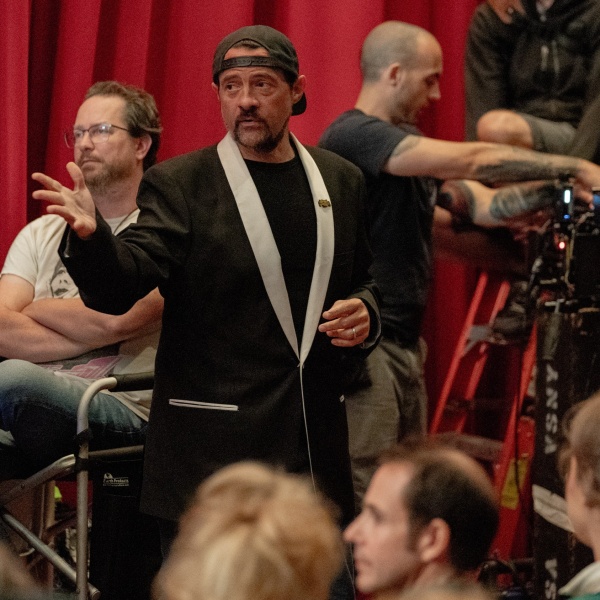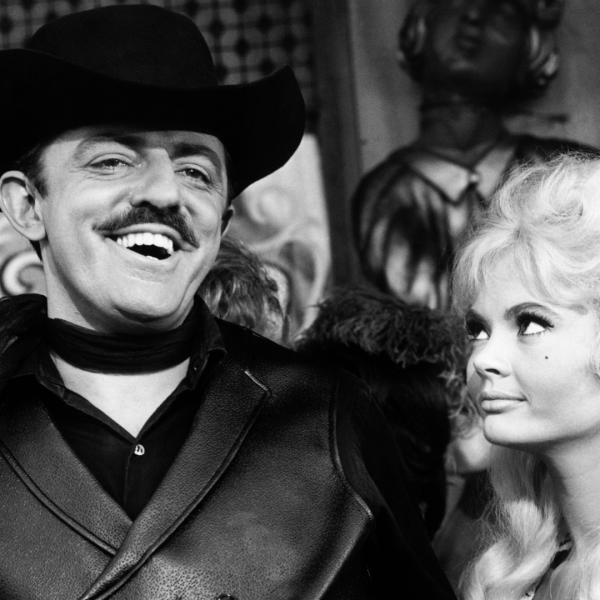With a title like “Everybody Loves Touda,” you might expect there to be a hint of sitcom to Moroccan filmmaker Nabil Ayouch’s latest, which premiered out of competition at Cannes this year. But despite the images of “Raymond” that name might evoke for a crass U.S. viewer — guilty as charged — Touda is less hijinks and more character study centered on the eponymous character, a woman in rural Morocco who wants to be a traditional singer known as a Sheikha.
The title also has a touch of irony. Touda, played with an entrancing fervor by Nisrin Erradi, does draw people into her orbit, but that attention is not always welcome. She wants to be loved as a singer, but too frequently the love she gets translates to unwanted advances. Men see her sensuality at the mic as an invitation regardless of her consent. In the opening sequence the drunken revelry ends with Touda being chased through a wooded area, and ultimately gang raped. “Love,” in this case, can be an oppressive force.
But Touda also loves what she does. It’s the brilliance with which Erradi performs, especially in the musical sequences, and the touching portrait of a woman pursuing her art despite the world seemingly conspiring against her to do so, that sustain and invigorate the film.
“Everybody Loves Touda” opens with a moment of joy punctured by a horrific sequence of sexual assault. After title cards that loosely explain the Sheikhat and their tradition of singing “Aita” — described in the press notes as a form of “vocal poetry,” more soulful and spiritual than the Moroccan pop in Touda’s repertoire — we see Touda at work. Her voice is loud and full of feeling. Her songs are those of independence — of women having power over men. But then the night turns, and she’s left bruised as she hitches a ride home.
Back in the tiny room where she lives — a claustrophobic space — it becomes clear she’s a loving mother to a young, deaf, and mute son who is bullied. In the evening she leaves him in the care of her nosy but kindly neighbor as she works in a nightclub where the beer is diluted to keep the patrons buying. She’s rewarded as much for her singing as she is for getting lecherous men to shell out for booze.
For Touda there’s a solution to her problems: Leave her village and head to Casablanca. In the big city she can not only seek the fame she desires — perhaps even getting on TV she hopes — but she can also find a school for her son that will give him the education she believes he deserves to receive. She herself cannot read, memorizing the plaintive Aita chants she desperately wants to perform by listening to them repeated on her phone.
Ayouch’s film runs on the dichotomies in Touda’s life and how she navigates her role as a caretaker with her personal desires. Singing is a calling for her, but it’s one that takes a toll on her emotionally. It’s not just that success is denied because of her setting, it’s that those around her abuse her passion. Men, of course, are the worst offenders, but women are too. When she takes a gig at a remote festival, the female leader of the group she has temporarily joined shames her for not shaking her hips enough. She doesn’t want to be just eye candy.
Ayouch shifts the cinematic language of the film depending on the situation Touda is in. When she’s singing, the mood becomes intoxicating, the lighting dim with neon flashes. It’s easy to fall under her spell. But that spell breaks as soon as Touda is silent. The ethereal magic of the stage turns dingy as she enters the crowd, and that’s to say nothing of the light of day that reveals the harsh reality of her life.
Erradi in turn makes Touda a shapeshifter. When she does her makeup and puts on her costumes she struts around as if she is already a star, irrepressibly magnetic. As she belts, she is full of self-possession, her eyes glowing. As such, it’s all the more heartbreaking to see her spirit broken as she tries to evaluate how to give her son and herself all she wants.
Erradi’s performance sometimes carries “Touda” when the script by Ayouch and Maryam Touzani lacks. For those unfamiliar with the musical styles referenced, the dialogue does little to explain what makes Aita so special and why Touda is so drawn to it, beyond hearing it in childhood. Erradi sounds consistently amazing so when a violinist late in the narrative tells her she needs practice it comes as a surprise. I left immersed in Touda’s story, but still itching to learn more about the Sheikhat. A film has no duty to cater to outsiders, but “Everybody Loves Touda” keeps them at an arm’s length.
Still, whenever I was searching for details about specifics of Touda’s calling, I could find myself lured back in by Touda herself and the openness of Erradi’s face and the spectacular verve of her voice. While the “love” of the title might come with a catch in context, the film itself makes you love Touda indeed.
Grade: B
‘Everybody Loves Touda’ premiered at the 2024 Cannes Film Festival in the Cannes Premieres section. It is currently seeking U.S. distribution.







